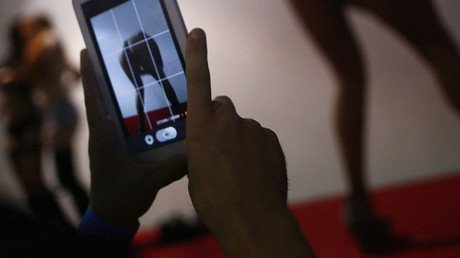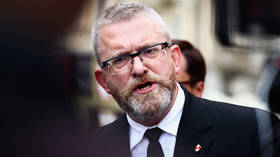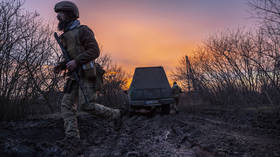Porn censorship & age checks breach human rights, says UN official

Online checks controlling whether children are accessing pornographic sites have been defined as a breach of human rights by a United Nations (UN) official.
The British government announced last year that any porn site failing to implement age verification checks before people can view explicit content will be immediately blocked.
But David Kaye, the UN’s special rapporteur on the promotion and protection on the rights to freedom of opinion and expression, has now urged politicians to reconsider, as the proposal could be in breach of “international law.”
A series of bans on pornographic content available to the public have been implemented by the Tory government since taking office.
Depictions of sexual acts such as spanking, face-sitting and female ejaculation are now banned in British porn, and internet providers could be hit with fines if they fail to block websites identified by the British Board of Film Classification (BBFC) as contravening the law.
Age verification checks will be made compulsory by amendments to the new Digital Economy Bill, which is currently being examined by the House of Lords.
But according to Kaye the measure could expose adult porn viewers to prying by the government, as well as lend itself to abuse by hackers and fraudsters.
“I am concerned that the age-verification provisions give the government access to information of viewing habits and citizen data,” Kaye said in a letter to ministers.
“Data provided to one part of government can be shared with other parts of government and private sector companies without a person’s knowledge and consent.”
The bill’s “lack of privacy obligations” was also a reason for concern, as well as the “significant tightening [of] control over the internet in the UK.”
“Age-verification requirement may easily be subject to abuse such as hacking, blackmail and other potential credit card fraud,” Kaye added.
But former Tory minister Claire Perry told the Sun the UN official was using “emotive language,” which “distracts from an important principle.”
“What is needed is a robust system in place to ensure that under 18s are not permitted to see material online that they would not have access to in the offline world,” she added.
READ MORE: Warped expectations: Over half of boys think online pornography is realistic, study finds
“The analogy they use is like saying stopping children from going to see an 18 film infringes on the rights of adults to go to the cinema — I just don’t think it holds much water.”
Children’s rights groups seemed to mostly agree with Perry, with the head of the Children’s Charities Coalition on Internet Safety, John Carr, saying: “It’s clear [Kaye] hasn’t read what is actually being done because everything he says is wrong.
“Proportionality is in the eye of the beholder but it’s clear there is a benefit to children in introducing these measures. States are under an obligation to protect children from this kind of harmful material – that’s what the government is doing.”













